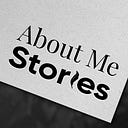About Me — Vladyslav Fedorishchev
I help the next generation of Leaders in Tech to learn and improve.
The role of learning in my life
Everything in life starts somewhere, my journey began in the 90s in a small town in the Eastern Ukraine.
As the son of two teachers, I was raised in a family where reading books and acquiring knowledge were integral habits. Our bookshelves were always filled with a mix of international literature and scientific texts. Reading both was deeply rewarding, and my parents and grandparents (who were also teachers) always encouraged my curiosity.
At the same time, learning wasn’t done solely for pleasure; it was always present in the background. As far back as I can remember, learning was an expectation. Much like in the U.S., in post-Soviet Ukraine, going to university after school was seen as a prerequisite for success. The journey to becoming a “worthy member of society” began in kindergarten, continued through school, and culminated in university. Unless your family had significant savings (which mine did not), you had to push as hard as you could to succeed.
Despite this pressure, I still enjoyed learning, with math and science being my favorite subjects. Later on, chemistry introduced me to a whole new world of problems to explore alongside our teacher.
Learning about influence and leadership
At school, while I enjoyed physics as a subject, I was never particularly fond of the classes themselves. Similarly, I wasn’t a huge fan of biology, but the teacher was so engaging that I fell in love with exploring how RNA and DNA work. Reflecting on what I liked and didn’t like about these subjects, I realize that’s where I first witnessed true leadership in action. These were teachers who not only mastered their subjects but also honed the craft of teaching. They were leaders who guided students through the world of science, while also helping shape our moral principles and nurturing our enthusiasm for learning.
After being sick for more than a month, I couldn’t help but notice how difficult it was for me to grasp the basics of chemistry, the subject we had just started learning. I struggled to understand Redox reactions and the strength of acids. I think I had never felt so dumb in my whole life. That’s when the biology teacher stepped in and gave me one of the most important lessons of my life — to ask for help.
Apparently, every teacher at our school had consultation hours that students could request to attend, but no one ever did. Needless to say, none of us knew that this benefit was right in front of us. I took her advice and spoke to our chemistry teacher, and the rest is history. We worked with her after lessons for a few weeks, and I also studied with my father at home. A couple of months later, I aced the tests — something that wouldn’t have been possible without the support I received.
The role of the family
My struggles with understanding chemical reactions also helped build a stronger relationship with my father. He was a sports teacher at school but had to switch careers to support the family. I never knew he was good at chemistry and physics, and the only way for me to discover that was through my struggle and the need to ask for help. As much as I appreciated the support from our chemistry teacher, working through difficult concepts with my father was the real motivator. He was patient and calm, always ready to explain the same thing over and over until I understood . This treat of his is something I know I need to get better at.
My dad’s new job was in a small office where cosmetic products were ordered, delivered, and distributed. That’s where I saw a PC for the first time — and where I also met the first programmers. Two smart guys in their 40s, who knew FoxPro and databases inside and out. One of them had built a program for the office that could navigate through thousands of cosmetic products and manage orders. Of course, there was always something that needed to be added or fixed, and I watched these two developers work together to troubleshoot bugs or add new features. It was fascinating.
I started learning the basics with the son of one of those programmers — variables, tables, and writing simple math operations in FoxPro. At the age of 16, I got my own computer and realized where my true passion lay. Informatics classes at school (basically computer science for kids) were another opportunity to dive deeper into the world of computers. We started with Turbo Pascal, and I also experimented with Delphi on the side. The more I learned, the deeper I fell into the rabbit hole.
By the age of 18, I knew I wanted to work with computers, but for some reason, I chose the Telecommunications faculty at the University of Radioelectronics in Kharkiv, Ukraine. It was supposed to be more interesting than “traditional” software development, or so a few of my friends told me.
University
At university, the same story repeated itself — I got sick and fell behind the rest of the group. This time, our math professor approached me directly after I returned from the hospital. “Young man, I see you’ve been sick, and you’ll struggle to catch up with the rest. I have two days a week where I work with students on the topics they’re struggling with. Feel free to come by!”. No fuss, no unnecessary sympathy or exaggeration from her, just pure empathy and a willingness to help — something a true leader does to lift up those who are struggling.
Studying was significantly harder than at school, but I discovered a few subjects I really enjoyed — or, should I say, professors who managed to engage me in a way that made me love what they taught. Among these were the foundations of signal transmission and encoding, as well as system administration. We were fortunate enough to have a class with Cisco servers and a dedicated program for students to prepare for the CCNA and CCNP exams and competitions.
I took the opportunity and spent several months preparing for the CCNA exam and a nationwide competition in Kyiv. Unfortunately, the competition was canceled, but the knowledge I gained was invaluable. It was also one of my first experiences learning something in English. It was challenging and meant I spent more time translating than absorbing information, but looking back, it was definitely worth it.
First Software Development Job
Later, around 2011, I started practicing Aikido, where, just like in my father’s office, I met several brilliant people — one of whom would shape who I am today. One of them was a Senior Product Manager at a software company, who was kind enough to give me a few tips on how to start my journey as a Software Engineer. A friend of his was passionate about building his own team of Junior Developers to work on websites for the local market. I took my chance, and a week later, I was sitting in an apartment with three other guys and our mentor, talking about Scrum and estimations. I didn’t understand a thing, but I was hooked. We worked with WordPress and PHP, struggling to produce any sensible results because of how inexperienced we all were.
Our mentor rented a small office, and that’s how I got my first job in software development. We weren’t really successful, but for me, it wasn’t about the money — it was about getting a feel for the industry and experiencing the team spirit. Several months later, we disbanded, and I was paid 500 hryvnias (around 50 dollars) — my first money for writing code.
This first job gave me the push I needed to start looking for something full-time, while still finishing my studies at the university. Through my PM friend from Aikido, I managed to land a job at ZFort, an outsourcing company, one of many during those years. They had just started hiring for their sandbox unit — an experiment to see whether hiring Junior Developers and then moving them to the main operations area was a good idea.
I lasted there for 8 months, making a lot of mistakes and struggling to understand the principles of OOP. Over time, it seemed like my Lead gave up on me and moved me to work on WordPress. I wasn’t happy about that, but I was also pretty bad at communicating my frustrations and expectations. I kept learning outside of work, and when my PM friend moved to a new job, I followed. By the time I finished my interviews with Inbitec (which would later become a division of Oracle in Ukraine), I was laid off from ZFort for “a lack of growth.” It was a valuable lesson for me — to keep pushing and to get better at communication.
Product & Leadership
At Inbitec, I worked alongside some of the best developers I’ve ever met. They knew their craft, were quick and intentional. Their code was solid, and they understood the product inside and out. I was learning and trying to reach their level as much as I could, but ultimately, I was missing the fundamentals that others had gained during their studies. I needed to catch up, so I started reading everything my Team Lead recommended — Refactoring by Martin Fowler, Clean Code by Robert C. Martin, and so on. Another developer was advocating for unit tests, which I also embraced, diving into the fascinating experience of following TDD. Later, a BDD framework called Codeception was released to the public. Based on Behat and the Gherkin language, it became the next tool in my arsenal.
But out of all the books and tools, the most impactful thing was something I never expected: the regular 1-on-1 meetings with my Lead. The amount of mentoring and guidance I received in those sessions was enormous. From programming tips to life lessons, these meetings shaped me in ways I hadn’t anticipated. At that time, he was studying at an online school called Stratoplan, which occasionally released free videos on leadership topics. He offered to send some of those videos my way. That was my first step into the world of leadership in tech.
I watched their videos on principles of constructiveness, negotiation, and understanding people. Practicing this new knowledge made me both a better engineer and a better person. Empathy was something I should’ve spent much more time practicing earlier, but a famous saying in my country goes, “The only thing worse than doing something too late is never doing it at all.”
Becoming a Leader
I moved to Germany and spent a total of 9 years in the gaming industry, transitioning from a Software Engineer to an Engineering Manager. I followed the same principles that have guided me throughout my life — staying curious, seeking out great leaders to inspire me, and finding fantastic mentors to help me improve.
Now, I’m on a path where it’s important to me to help the next generation of leaders in tech grow and discover their passion.
Stay tuned for my upcoming posts, where I’ll be sharing insights on stepping into the role of Engineering Manager, based on my personal experience.
Let’s Connect
Follow me on LinkedIn https://www.linkedin.com/in/vladyslav-fedorischev/

